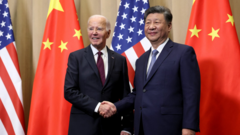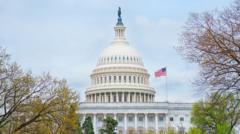
British Businessman Avoids Criminal Charges for Illegal Russian Perfume Sales
David Crisp, a British businessman, has escaped criminal prosecution despite admitting to illegally selling luxury perfume to Russia in violation of UK sanctions. An undercover investigation revealed Crisp’s continued trade with Russia after the country’s invasion of Ukraine in February 2022, despite government restrictions.
In a secretly recorded conversation with a private investigator in Dallas, Crisp candidly stated that he was “ignoring government edicts” and continuing to sell £1,000-a-bottle “Boadicea the Victorious” perfume in Russia. The sanctions specifically banned trade in perfumes, with potential prison sentences of up to 10 years for violations.
Crisp’s former business partner, David Garofalo, became suspicious after a whistleblower claimed Crisp was still trading with Russia. Garofalo hired private investigators who gathered compelling evidence, including:
– Pallets of goods with paperwork showing Russian recipients
– International shipping data confirming deliveries
– Products discovered for sale in Moscow that were launched after sanctions were imposed
The evidence was so strong that a High Court judge granted a provisional injunction to remove Crisp from the company, describing the undercover video as “compelling evidence” of knowingly breaching sanctions.
Despite HMRC (HM Revenue and Customs) arresting Crisp and seizing his passport in October 2023, the investigation was dropped by July of this year. Notably, there have been no criminal convictions for violating Russian trade sanctions since the invasion began.
Senior Conservative MP Sir Iain Duncan Smith criticized the lack of enforcement, calling it a “bad signal” that makes the UK look like a “soft touch.” He argued that without prosecution, there’s no real deterrent to sanctions violations.
Tim Ash from Chatham House suggested that the UK government initially hoped sanctions would work without robust enforcement. However, the potential profits from Russian business prove too tempting for some companies.
Crisp denies knowingly breaching sanctions, stating he looks forward to being “fully exonerated.” HMRC maintains that sanctions violations are serious and can result in financial penalties or criminal prosecution.
The case highlights a broader issue of sanctions enforcement, with critics arguing that the UK is far behind other countries like the United States in prosecuting violations. Sir Iain Duncan Smith emphasized the need for “arrest, prosecution, and incarceration” to make sanctions meaningful.
While HMRC claims to have fined five companies for sanctions breaches in the past two years, the lack of criminal prosecutions raises questions about the effectiveness of the UK’s approach to economic sanctions against Russia.
The situation underscores the challenges of implementing meaningful economic pressure on countries during international conflicts, with financial incentives often outweighing political considerations.








